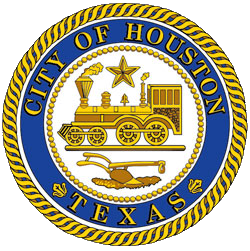HOUSTON – The Houston Health Department (HHD) recommends residents begin taking precautions against high temperatures to avoid heat-related illnesses. High heat indices are expected in the Houston area the next few days.
High body temperatures can lead to damage to the brain or other vital organs and even death. Fifteen people in Houston and Harris County died due to heat-related illnesses in 2018.
“We urge Houstonians to take the initiative to check on elderly relatives, friends or neighbors for signs of heat-related illnesses such as heat exhaustion or heat stroke,” said Dr. David Persse, Houston’s local health authority and EMS director. “It takes seniors nearly twice the time than younger people to return to normal body temperature after exposure to extreme temperatures.”
Others particularly vulnerable to heat-related illnesses include infants and children up to age 4, people who are overweight and those with heart and respiratory illnesses.
To prevent heat-related illnesses:
- Increase water consumption. Drink lots of liquids even before getting thirsty, but avoid those with caffeine, alcohol or large amounts of sugar because these can result in the loss of body fluid.
- Conduct outdoor work or exercise in the early morning or evening when it is cooler. Outdoor workers should drink plenty of water or electrolyte replacement beverages and take frequent breaks in the shade or in an air-conditioned facility. Those unaccustomed to working or exercising in a hot environment need to start slowly and gradually increase heat exposure over several weeks.
- Wear light-colored, loose fitting clothing that permits the evaporation of perspiration.
- Do not leave children, senior citizens or pets unattended in a vehicle.
- Use a wide-brimmed hat to help prevent sunburn as well as heat-related illness. Sunscreen also protects from the sun’s harmful rays and reduces the risk of sunburn.
- Seek accommodations in air-conditioned facilities during the heat of the day if a home is not air-conditioned: multi-service centers, malls, movie theaters, libraries, etc.
- Take frequent cool baths or showers if your home is not air-conditioned.
- Stay alert to heat advisories. The National Weather Service declares a Heat Emergency when the heat index, a computation of the air temperature and humidity, reaches 108 degrees on two or more consecutive days. A heat index of 108 is a potential health threat for all people and is particularly dangerous for high-risk groups.
Heat exhaustion, usually associated with heavy activity, is the body’s response to an excessive loss of water and salt contained in sweat. Signs include profuse sweating, paleness, muscle cramps weakness, dizziness, headache, nausea or vomiting, a weak-but-rapid pulse and fainting. The skin may be cool and moist. If heat exhaustion is untreated, it may progress to heat stroke.
Heat stroke occurs when the body’s temperature rises rapidly, the perspiration system fails and the body is unable to cool down. Body temperature may rise to 106°F or higher within 10 to 15 minutes. Heat stroke can cause death or permanent disability if emergency treatment is not provided. Suffering from a permanent disability could prevent you from completing tasks that you never had to give a second thought about before, and may even stop you from doing your job altogether. When this happens, looking into long-term disability insurance quotes could be in your best interest, as if you’re unable to work, your insurance will be able to provide you with a source of income until you’re better. Depending on how severe your heat stroke is, it could change your life forever unless you spot the signs and do something about it whilst you can.
Heat stroke symptoms include an extremely high body temperature (above 103°F, orally), red, hot and dry skin (no sweating), rapid and strong pulse, throbbing headache, dizziness, nausea, confusion and unconsciousness.
Staying indoors, preferably in an air-conditioned home or building such as a library, shopping mall or multi-service center, is the best protection against the heat. Electric fans may provide comfort, but when the temperature is in the high 90s, fans without refrigerated air only spur the movement of hot humid air, which will accelerate body heating and raise internal body temperature. Taking a cool shower or bath or moving to an air-conditioned place is a much better way to cool off.
